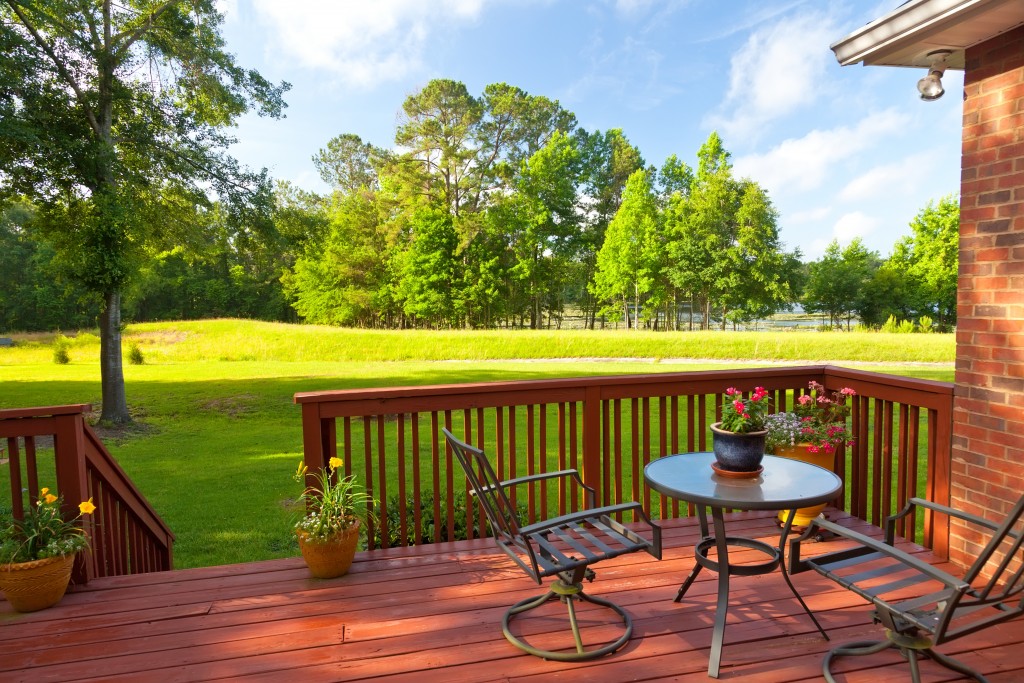The design process is always critical in any structure, perhaps a little more for your abode. Of course, you need not be too stringent with your DIYs and construction process. But putting pre-construction discipline like a pro into your efforts should bid you well. It’s a given. You wouldn’t want to waste a single penny on a lackluster job, right? At a time when the virus is still wreaking havoc all over the land, it’s paramount you squeeze your budget as tightly as you can.
And as you and your family have been highly likely under stay-in-place orders for some time now, expanding your family space at home is wise. Certainly, it can give you more space to enjoy the best of what life can offer. At a time, when mental health is a challenge, having more family time should be refreshing. Indeed, time outdoors is time for recovery and recreation. It’s a time to enjoy.
Thus, it’s apparent that a deck and a patio are two of the best ways to expand your precious abode and gather. But which should be best for you? That is the million-dollar question. Here’s an expert to make your endeavor worth your while.
By Definition
Before we turn a leaf, a clear-cut definition of terms should serve us well. Think of a deck as an open outdoor porch. Meaning, it is a platform without a roof that directly extends from your house. It can be from the ground floor or even as a roof as in the roof deck.
On the other end of the spectrum, a patio is a paved garden. It can be attached directly from your precious abode or it can be a standalone garden detached from your property. The thing is you’ll have to step outside to be on a patio.
The Case for Patios
Right off the bat, know that patios will cost you far less than a deck. Indeed, a paved garden that’s flushed right to the ground is the cheaper choice. Generally, it will cost you around $5 per square foot. Though there are many ways to pave a patio, concrete will come out as the less costly option.
Plus, patios are not as high-maintenance as decks. It stands strong even when battered by the weather. Unlike decks, there’s simply no need to seal a patio against moisture. If you choose to seal it though, you can do sparingly, once every two to three years.
And as a patio is ground-based, you get as much privacy as you need, unlike a deck where you could be seen even from afar.
Best of all, your patio can last as long as 25 years. That’s a long, long time of maintaining the value without having to sweat so much for upkeep.
Cons of a Patio

On the downside, since patios are terrain-dependent, it’s best for even ground. If not, you’ll have to spend some to level the foundation. This also means that if the soil under your patio wasn’t properly prepared, the concrete could crack. And that can be made worse by inclement weather.
Further, you will be facing extra work if the patio is installed in areas where there’s plenty of ground movement. Also, a patio can be a slipping risk. In winter, ice due to the cold weather can easily form on the paved garden’s surface making it slippery. Making matters worse, the exposure to the elements can mean natural stains such as mold and mildew can accumulate over time.
Thankfully you can get some cover for your patio for better results. A presidential or commercial canopy, for instance, with its sturdy structure and aesthetic appeal, can save you a lot of trouble, not to mention keep everyone safe from the weather.
The Case for a Deck
A deck may cost you more but it has a better return of investment or ROI. As it improves the curb appeal of your home, it will give you as much as 76% ROI. Meaning, your house will be appraised higher with a deck, higher than any home renovation.
And you won’t have a problem with uneven ground. Decks can be installed stress-free no matter the terrain. Plus, you’ll be amazed by the better view on a deck, especially true if it’s a roof deck. To boot, you can design a wooden deck so it matches your house’s exterior.
Deck Downsides
Decks will cost you more. We’re talking about $30 per square foot if you want a high-end one. That can certainly add up.
Worse, you’ll need to attend to your deck more than to a patio. And the list can be exhaustive. For one, you’ll have to ensure it’s power-washed and sealed at least once a year. Remember, decks are (usually) made of wood. So it’s susceptible to the torment of the weather. Reason enough why decks have a shorter lifespan.
To add injury to insult, you may have to ask for a permit from the authorities if you want to put up a deck. Some towns/cities/homeowner’s associations require one, making you wait to process one.
Then again, it can be all worth it. At a time when families are under attack by the virus, a good decision from you should be just what everyone needs to get by — and thrive.

